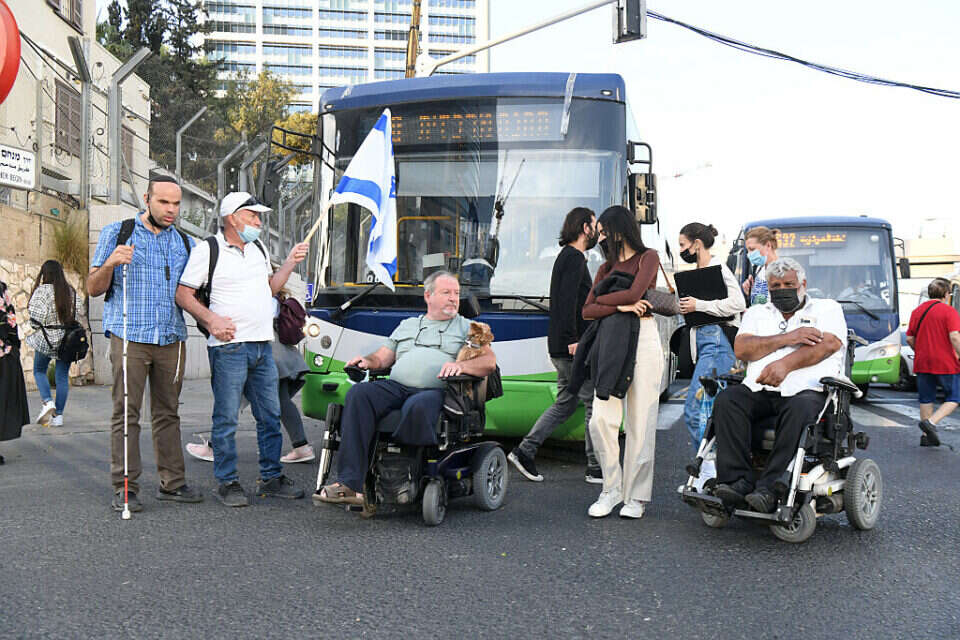There are about seven billion people in the world, of which one billion - about 15% - live with disabilities.
About 1.5 million people with disabilities live in Israel, of whom about 600,000 have severe disabilities.
And what is the situation in Israel? First, it may be worth noting that in the Knesset we have people who themselves live with disabilities: the first minister with disabilities, Karin Elharar, in a wheelchair; The first deaf MK, Shirley Pinto; MK Sami Abu Shahda with a visual impairment, and in addition there are also parents of children with disabilities such as Minister Yair Lapid and MK Yoav Kish. Definitely for the first time adequate representation. MK Pinto and MK Yurai Lahav ran. In addition, MK Efrat Reitan, Chairman of the Labor and Welfare Committee, and MK Michal Bitton, Chairman of the Economics Committee, are in charge of accessibility issues and are working to promote the issue. These are great innovations. And positive, but this is just one angle out of many.
The half-full glass has been slowly filling up since 1999, with the enactment of the Equal Rights for Persons with Disabilities Act, continued access to the Accessibility Chapter, Accessibility Elections Act for Mobile Disabilities, Obligation to Access Government Buildings, Public and Private Buildings, Accessibility of Education and Academics, Accessibility of Automated Devices and Websites, Accessibility in the field of culture, sports and tourism.
Undoubtedly, accessibility has greatly improved and improved the quality of life of those with disabilities.
The amazing thing is that we already had to have a full glass.
When the law was enacted, the intention was that by this year we would be 100 percent accessible, but government ministries as well as Knesset committees did not install regulations.
The Israel Accessibility Association, with the participation of Bichot, filed a petition in principle with the High Court, thanks to which the government ministries have installed most of the relevant regulations - except for four files of regulations that require completion, and are the responsibility of Defense, Health, Education and Home Affairs.
Beyond procrastination, the government sector has not been able to meet the deadlines set by law for the past three years, and instead of being accessible by the end of 2017 it may be accessible by the end of 2022. Local authorities, which were supposed to be accessible by 2021, Health, which is critical in terms of accessibility, is still in poor condition and accessibility is greatly delayed.
There are significant and very important areas in which we have not made progress: public transportation, access to health services, access to life in most authorities, housing, religious institutions and emergency preparedness.
These are critical areas for us, the people with disabilities, and it seems that government ministries just do not care.
The result is that a huge public is left behind, discriminated against, under house arrest, with no growth potential.
It is difficult to understand and analyze why ministers, and MKs do not promote the issue, despite the importance and social and especially economic contribution that results from the integration into society of people with disabilities.
It is clear that a person who is under house arrest is less healthy, more socially isolated and unemployed, and therefore more dependent on well-being economically and socially.
If these areas were accessible, health would improve, people would go out to work, meet socially and contribute economically to themselves and the economic empowerment of the country.
Government ministries and our elected representatives in the Knesset must internalize: promoting integration and accessibility is no longer a regulatory expense but an investment in the empowerment of the state, both economically and socially.
When they understand this, we will see an improvement in accessibility and, as a result, an improvement in the quality of life of hundreds of thousands of people with disabilities in the country.
Were we wrong?
Fixed!
If you found an error in the article, we'll be happy for you to share it with us

